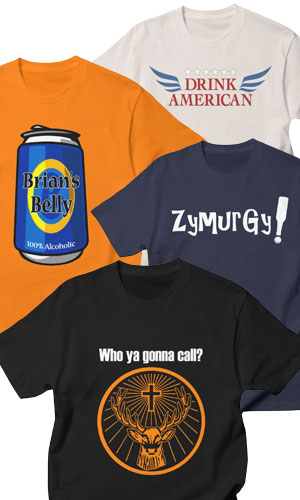 “Big Beer” is getting even bigger. Anheuser-Busch InBev, the beer maker that you sometimes love to hate or hate to love is expanding–yet again.
“Big Beer” is getting even bigger. Anheuser-Busch InBev, the beer maker that you sometimes love to hate or hate to love is expanding–yet again.
SABMiller accepted (in principle, as news outlets are reporting) a takeover bid valued at over $100 billion from Anheuser-Busch InBev in a deal that would form a company that would control nearly a third of the global beer market.
SABMiller, owned by South African Breweries is the distributor of beers such as Miller Lite. It is the second-largest brewer in the world. Anheuser-Busch InBev, which was formed several years ago when Belgian company InBev purchased American Anheuser-Busch, is the distributor of beers like Budweiser and Bud Light and is the largest brewer in the world.
The size of this deal is massive. A company this big is bound to raise eyebrows and can’t be good for beer drinking consumers. Several years ago SABMiller and MolsonCoors of Canada teamed up and created MillerCoors to battle the increasing size of Anheuser-Busch. If this merger moves ahead unadulterated, the same company that distributes Bud Light will also distribute Miller Lite and Coors Light, the three most popular “lights” in the U.S.
I–like others that I know–have been drinking more unique and tasty craft and less and less (and less) of the AB brand beers since they merged with InBev (although for the record, I drink Miller High Life when I need a lawnmower beer that reminds me of dear old dad). Hence it would be easy to joke that two piss beer brewers will merge and make something even worse… or say who cares, or compare them to sex in a canoe, etc. But I’d rather think this through a little.
So is a merger bad for craft breweries, craft drinkers or beer drinkers in general?
If these two huge “breweries” merge, it is certainly bad for consumers of mass-appeal beer. Big beer companies have been consolidating for years to gain brewing and distribution edges over smaller companies… it’s competitive economics. They also see the current trend in beer; despite negative craft ads that AB has produced, they are buying up some medium-sized craft companies to make sure that those bottles and cans catch your eye at the grocery store where space is limited. Being bigger means they have more control over those retailers. Imagine a store shelf that is watered down with only big yellowy beer. Money going to huge foreign corporations instead of into local or regional pockets. Beers that begin to merge and homogenize themselves, until one day AB InBevMillerCoors decides that there is no reason to make your beloved Milwaukee’s Best because there is not enough room on the shelf for that and Bud Light Lime-A-Ritas… besides, they taste the same now… and they all cost more because one company sets all the prices.
It *could* be bad for craft and microbreweries as they try to broaden their own brands. Would a future small brewer ever have the chance to join the likes of Boston Beer or Sierra Nevada? Those same crowded store shelves will elbow out your favorite smaller craft and micro brews. No space for the smaller companies to get their labels in front of Joe six-pack to discover. On the other hand, craft brewers may be able to use yet-another-big-merger-and-acqusition to their advantage. Everyone loves an underdog.
Which leads me to the craft drinker. Consumers of craft brews will always find a way to get the beers they love through specialty beer stores and local brew-pub trips. Growler use is on the rise. The impact won’t be on drinking your favorites, but perhaps on the convenience of acquiring them at a chain grocery store that’s not yet smart enough to showcase the local guys.
So mass-appeal drinkers may not initially care about the first behemoth-sized beer merger at first, even though they should. They’ll just keep buying “whatever” until they see higher prices and less choices. Craft brewers should care, if only because they will be strong-armed for shelf space. Craft drinkers would see some inconveniences.
I can’t speak for the rest of the world and what the global implications are when a company controls 31% of ANY market, but I would hope that regulators here in the U.S. would at least recognize that no company should have such a monopoly on any goods. Too bad beer brewers aren’t a public utility, at least that way we’d be sure that the essential “brewing services” they provide would be more heavily scrutinized when it comes to mixing drinks like this.
But let’s look at the bright side… part of the reason for this merger is that big beer companies like AB InBev and SABMiller are worried about losing market share to smaller micros, and those micros ARE making a difference. Make ’em more concerned and go buy a craft beer! Next time it’s tempting to try something called “Bud Light Mang-o-Rita,” think about how silly you’ll look holding that bottle. Peer down at the end of the shelf and try something local.
Re-posted from our Buddy site Drink American.


